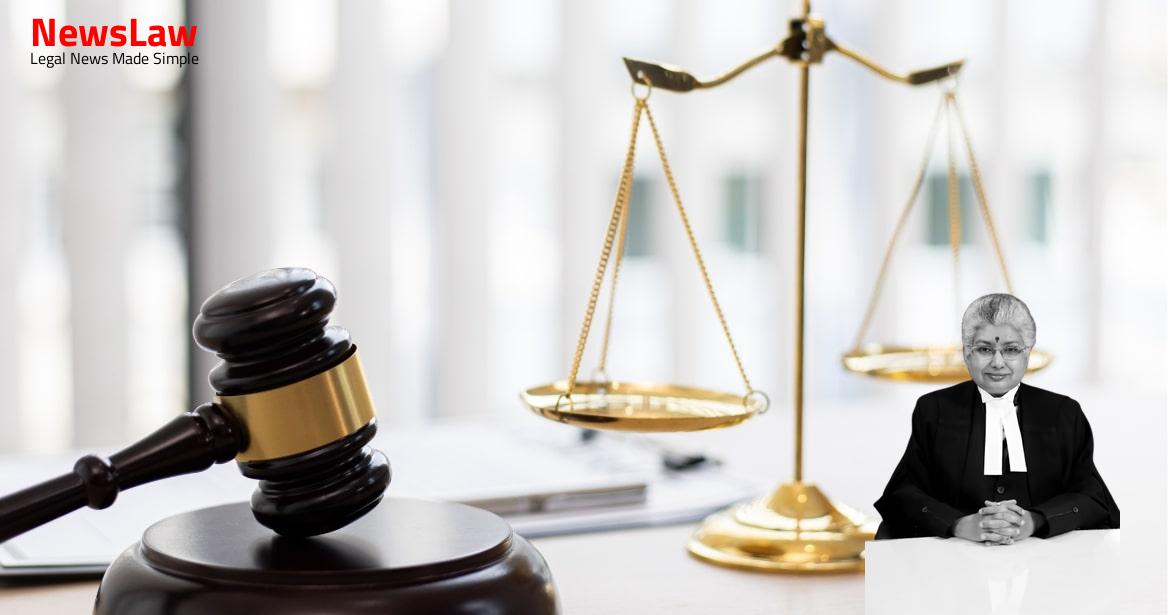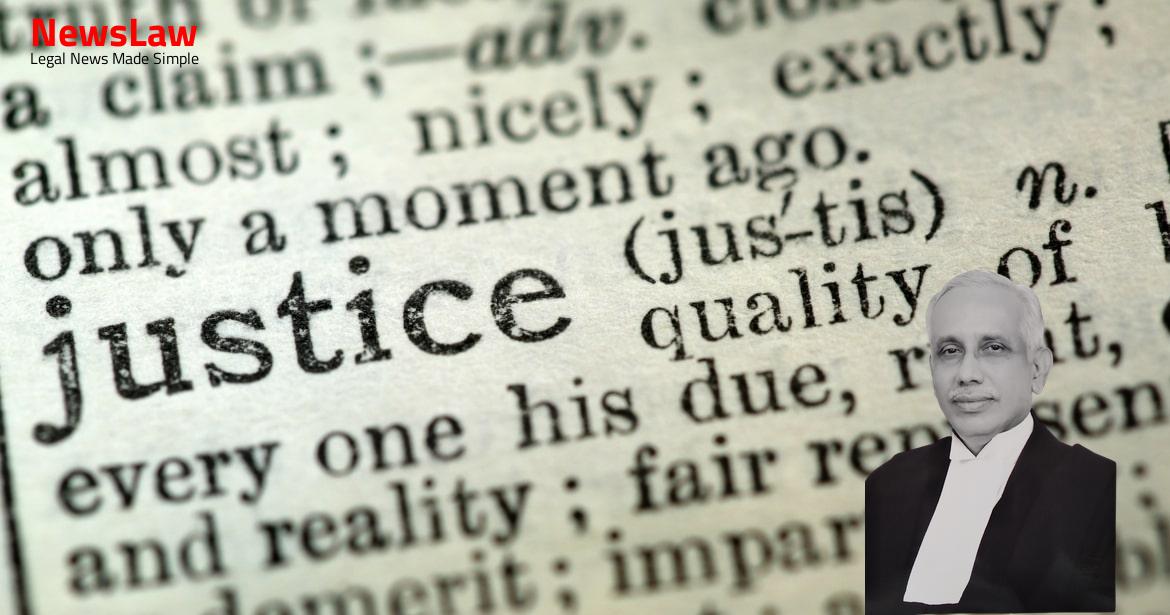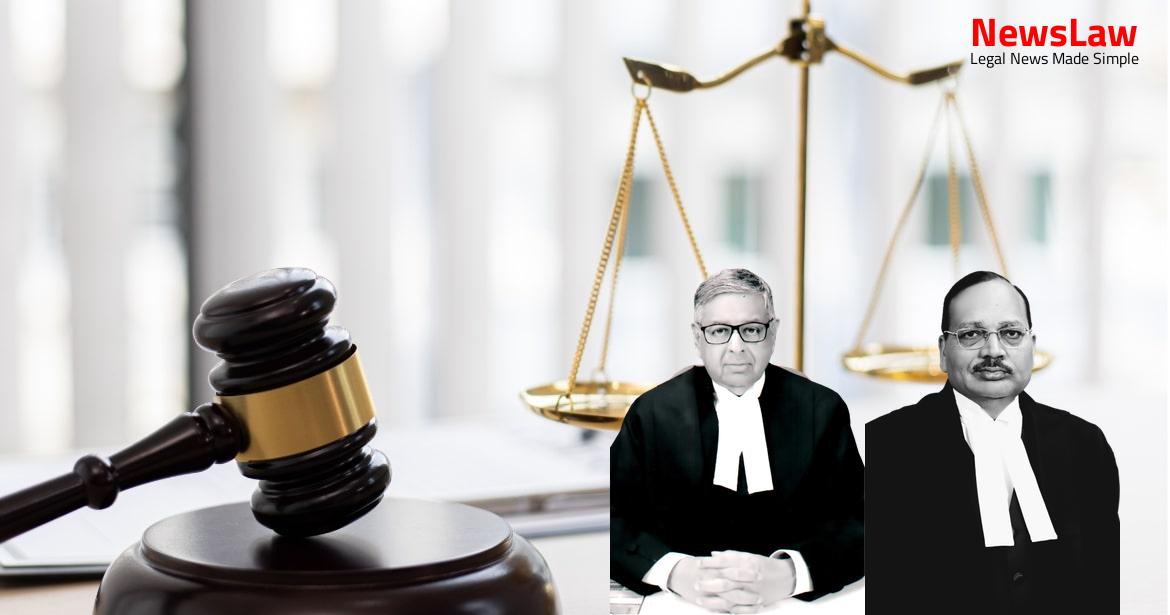The legal analysis of jurisdiction and the necessity of a preliminary inquiry in corruption cases is of utmost importance in maintaining the integrity of the legal system. Understanding the court’s perspective on these matters sheds light on the complexities involved in prosecuting such cases. Let’s explore further into the intricacies of the law and its application in ensuring fair and just proceedings.
Facts
- The FIR was registered against the respondents by CBI’s Anti-Corruption Branch in Chennai on 20 September 2017.
- The respondents’ income during the check period was Rs 4,84,76,630, while their expenditure during the same period was Rs 40,33,322.
- The writ petition filed by the respondents raised three main points: (i) Allegation of political motivation due to the second respondent’s affiliation with a rival political party, (ii) Lack of Preliminary Enquiry before FIR registration by the appellant, and (iii) Insufficiency of particulars in the FIR to constitute an offence.
- The FIR alleges possession of Disproportionate Assets amounting to Rs 1,10,81,692, which is 22.86% of the income earned during the check period from 1 April 2010 to 29 February 2016.
- The FIR has been registered for offences punishable under Section 13(2) read with Section 13(1)(e) of the Prevention of Corruption Act 1988 and Section 109 of the Indian Penal Code 1860.
- The second respondent, who is an MLA and Minister of Education in Andhra Pradesh, is also implicated in the case.
- The FIR is based on source information received by CBI ACB Chennai on 20 September 2017.
- Statements A and B in the FIR indicate the respondents’ assets at the beginning and end of the check period, respectively.
- The FIR computation shows that the Disproportionate Assets during the check period were Rs 1,10,81,692, which amounts to 22.86% of their total income.
- The respondents filed a writ petition seeking the quashing of the FIR before the Telangana High Court.
- The first respondent, a Civil Servant since 1992, was working as Commissioner of Income Tax (Audit -II) when the FIR was registered against her.
- The High Court quashed the FIR based on the following reasons:
- Respondents’ income can be determined from their known sources of income under Section 13(1)(e) of the PC Act.
- Central Bureau of Investigation should have conducted a Preliminary Enquiry before registering the FIR to verify the information from known sources of income.
- Allegations against the respondents in the FIR seemed unsustainable based on information from known sources of income.
- Inconsistencies in the FIR highlighted where assets were over-valued and income was under-valued without explanation.
- The petition included annexed documents like Income Tax Returns, property declarations under CCS Rules, affidavit filed under RP Act, and letters under CCS Rules.
Also Read: Electoral Malpractices in Mayor Election
Arguments
- The Telangana High Court did not have jurisdiction to entertain the writ petition filed by the respondents as the FIR was registered by the CBI ACB at Chennai and submitted to the Principal Special Judge for CBI Cases in Chennai, therefore only the Madras High Court had jurisdiction.
- The CBI Manual does not require a Preliminary Enquiry before FIR registration, and such enquiries are only conducted when the information is insufficient for a Regular Case.
- Arguments regarding the respondents’ income focus on discrepancies in the FIR where a property in Bangalore is accounted for both as an asset and as income from its sale, with the sale being disputed by the appellant.
- Veracity of the documents of sale can only be determined at the stage of trial.
- The documents which gave rise to the ‘source information’ were seized during raids conducted at the first respondent’s residences.
- The first respondent was examined in the case where documents were seized.
- The raids were conducted at the first respondent’s residences in Secunderabad and Jubilee Hills on specific dates.
Also Read: Balancing Power and Transparency: Electoral Bonds Struck Down, Disclosure Mandated
Analysis
- A Preliminary Enquiry before the registration of an FIR is a necessary requirement in cases of alleged corruption involving public servants, including those of Disproportionate Assets, since undue haste would lead to registration of frivolous and untenable complaints which could affect the careers of these officials.
- The CBI Manual emphasizes the need for strict compliance with its provisions, including conducting a Preliminary Enquiry before registering an FIR.
- In cases involving claims of alleged corruption against public servants, a Preliminary Enquiry is considered essential to gather sufficient material establishing the commission of an offence.
- The High Court has the responsibility to assess whether the allegations in the FIR prima facie constitute an offence before deciding on quashing the FIR.
- The purpose of Lalita Kumari noting that a Preliminary Enquiry is valuable in corruption cases was not to vest a right in the accused but to prevent the abuse of the legal process to target public servants.
- The Single Judge of the Telangana High Court overstepped established boundaries by quashing an FIR without considering relevant documents that could show Disproportionate Assets.
- The High Court could have assessed the case of Disproportionate Assets against the respondents based on documents and information found during investigation, reducing the value of assets in the FIR.
- The need for a Preliminary Enquiry is case-specific; not mandatory in all corruption cases involving public servants. A Regular Case can be registered directly if needed.
- Previous Court judgements and CBI Manual state that a Preliminary Enquiry is not mandatory before registering an FIR for corruption cases. The FIR should be reviewed on whether the allegations make out an offence.
- The Single Judge delved into trial-like proceedings while quashing the FIR, a move beyond its jurisdiction. The Court must only ascertain if the FIR prima facie indicates a cognizable offence.
- Document reliance by the respondents does not warrant FIR quashing; a Preliminary Enquiry may not be necessary depending on circumstances.
- The High Court unjustly quashed the FIR by focusing on minor financial errors and disregarding the overall investigative process.
- FIR-related disputes should be assessed based on whether they prima facie indicate an offence, not delve into deep investigations like a trial.
- Telangana High Court made a mistake that should not be repeated by this Court.
- The only issue agreed upon by the appellant and respondents is the separate valuation of the elevator in a house already valued.
- The addition of the elevator value, Rs 10 lakhs, is not significant enough to dismiss the Disproportionate Assets case against the respondents.
- The FIR against the respondents cannot be quashed at this stage, and the investigation will continue.
- The dispute regarding the registration of the case against the respondents due to withdrawal of general consent by Andhra Pradesh under Section 6 of the DSPE Act is noted.
- The FIR was registered in Chennai under the general consent of Tamil Nadu, and the first respondent is a Central Government employee.
- Jurisdiction issues regarding the Telangana High Court and the need for consent of the Speaker for registering the FIR against the second respondent are temporarily set aside without a firm decision.
- The judgement of the Telangana High Court quashing the FIR and its proceedings is set aside in conclusion.
Also Read: Recall of Resolution Plan Approval: Legal Analysis
Decision
- The appellant can continue with its investigation based upon the FIR
- Pending applications, if any, are disposed of
- The appeal is allowed and the impugned judgment is set aside
Case Title: CENTRAL BUREAU OF INVESTIGATION (CBI) Vs. THOMMANDRU HANNAH VIJAYALAKSHMI @ T.H. VIJAYALAKSHMI (2021 INSC 643)
Case Number: Crl.A. No.-001045-001045 / 2021



